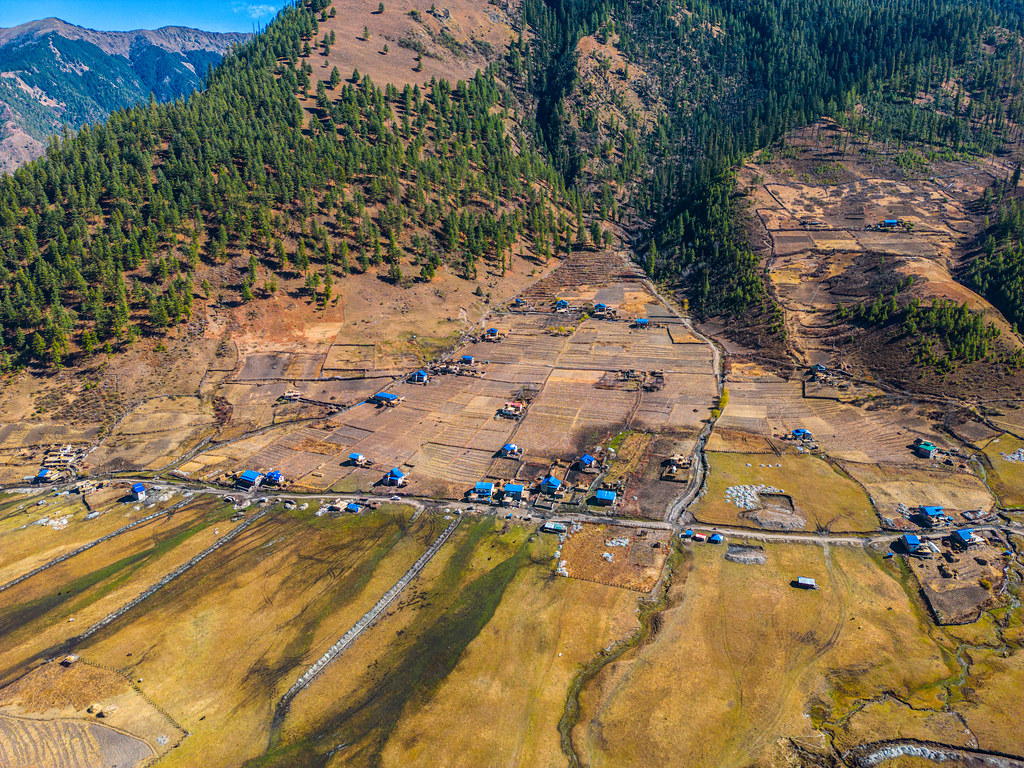


The inception of the project started just after the Covid19 outbreak in early 2020, when the whole nation witnessed an exodus of migrant returnees from India crossing over the Indo-Nepal border at different locations, risking their lives in extremely dire situations on their way back to their homelands, especially in the western parts of Nepal. The project, which focused on the migrant returnees in Sudurpaschim and Karnali provinces, started with a humanitarian response to the crisis and continued with attempts to address persistent issues around seasonal labor migration to India.
The Covid19 pandemic exacerbated the plight of hundreds of thousands of migrant workers, many of whom were found jobless in a foreign land, stranded in isolation. Some got stuck across the borders, unable to return home due to lockdowns, while others managed to come back but are without jobs, relying on meager savings. The majority of returnees from seasonal migration to India faced an uncertain future as strict lockdowns persisted. Small landholdings, limited agricultural productivity, resulting food insecurity, lack of skills or education, and limited livelihood opportunities in their hometowns force thousands to migrate to India seasonally in search of jobs and extra income. The strict lockdowns in both Nepal and India meant that they were trapped in a situation that led to emotional, psychological, and financial stress evident in the number of suicides, domestic violence, and violence against women that grew exponentially around that time.
With no option but to return to their hometowns post-COVID-19, many were destitute, with few livelihood opportunities in rural villages, facing the same problems they were hoping to escape: food insecurity, poverty, and joblessness.
Reports from brief assessments done during the early days of the pandemic in the two provinces showed that 65% of the migrants have returned home without receiving their final payments. Of these, 59% are daily wage earners, and they had to survive in India for two and a half to three months without salaries. For families already living close to the poverty line, this is exceptionally challenging. Additionally, interviews with returnees revealed that 35% of their families are entirely dependent on the income of these migrants.
Like any other disaster, the COVID crisis hit the poorest the hardest. Migrant returnees have minimal risk-bearing capacity and had no concrete plans for the future. There were reports of countries furloughing or even laying off migrant workers. The unplanned and untimely return of migrant workers can push many of them into debt traps for the loans taken to finance their migration abroad. The shock of job loss, lack of livelihood opportunities back home, and substantial family responsibilities undoubtedly subjected many of these returning migrants to unprecedented mental stress.
Against this backdrop, project SRIJANA was born which envisaged assisting these returnees in creating self-employment opportunities for and by themselves. The project has two-pronged approach, supporting the returnees in establishing micro enterprises of their choice in their own home villages, and up skilling founded on their skills set and market demands, and facilitating the connection between the returnees and the local job market so that they can live in dignity with their families. At this moment, 2,731 returnees from seasonal migration to India directly participate in the project with around 75% staying back with their families, living off their own local earnings.
Specific objectives
Cordaid Nepal is an internationally operating value-based emergency relief and development organization. We have longstanding experiences in fighting poverty and social injustices both in the Netherlands as well as worldwide. Through our networks we work from grassroot level to national and global level. We reach out to people who want to realize a good life for all and want to act upon it. Cordaid is implementing a three-year project SRIJANA, funded by Kerk in Actie with consortium partners International Nepal Fellowship (INF) in Jumla and United Mission to Nepal (UMN) in Bajhang. Creating Opportunities for Socio-Economic Well-being of Migrant Youths (SRIJANA) project is designed to support migrants’ returnees and youths who lost their source of income during the Covid19 pandemic and are facing economic crisis, through quick return/high value farm and off-farm livelihood options. The overall goal of SRIJANA project is promoting dignified and self-reliant livelihoods for migrant returnees and potential migrant youths by creating market-oriented livelihoods and employment opportunities which directly contribute to SDG goal 1: end poverty in all its form everywhere and Goal 8: Promote sustained, inclusive, and sustainable economic growth, full and productive employment and decent work for all.
The project is also consistent with our strategy of economic recovery during Covid19 pandemic and the resulting impacts due to lockdowns to the migrant’s returnees and their families. The project intends to take the opportunity for reviving Nepal’s agro-based economy with the introduction of modern technology and making agriculture an enterprising occupation.
